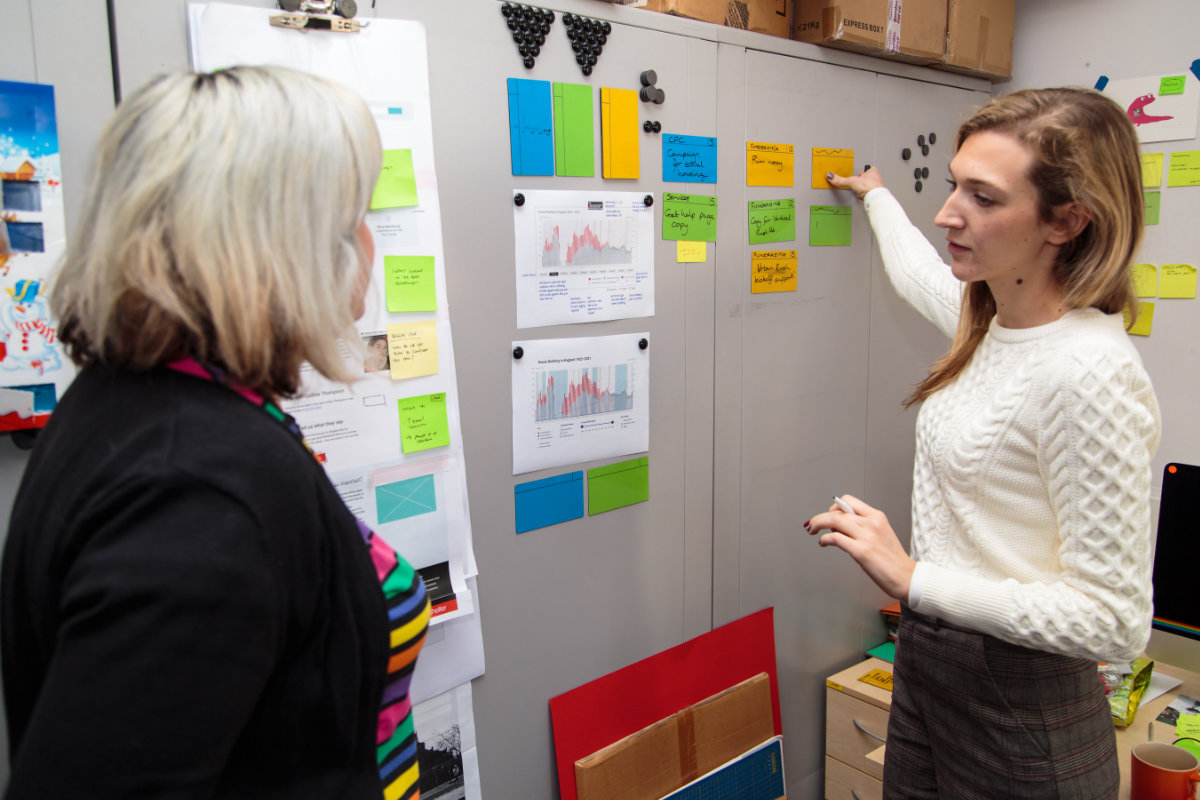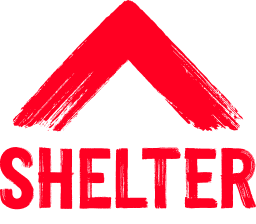Digital teams and their partners
Collaboration is the lifeblood of great digital output. No matter which parts they play in delivering Shelter’s services, products and content, internal and external partners are an important piece of our digital performance.
Partners include:
subject-matter experts
services teams
team managers and leads
legal compliance
agencies
service delivery partners
corporate partners
research partners
other charities
govt and councils

'I’ve always love working with the digital team, right from the ideation stage through to delivery. I find the process to be very methodical and the workshops do a good job in pulling out everyone’s best ideas. It’s a very collaborative process which includes people from across CPC.
'Recently, I enjoyed working on both the Home Truths and Time for Change report, and I feel in the end we co-created a great product that achieved its objectives. In the past I thought our Section 21 consultation tool was superb. It played a really important role to keep scrapping Section 21 on the agenda.'
James Austin, Campaigns Officer
How do partners play their roles in our digital operations?
Through product teams
A product team will bring in the right mix of additional people and expertise to fit a specific problem.
This could be a regular product team in Central Digital or Scotland. In central product teams, product managers work closely with their assigned directorate to plan, prioritise and process work.
Or the product team could be an ad hoc, fit-for-purpose group (sometimes called a project team) led by a devolved team such as Digital Advice or Digital Fundraising.
Whether it’s a permanent product team or ad hoc project team, they’ll use our working principles to see that the solution is reached collaboratively, with user-centred design and decisions made at the right level.
Through Communities of Practice
Communities of Practice (CoPs) are non-hierarchical cross-org groups of people who share a concern or passion for something they do, and learn how to do it better through regular interaction. These conversations also help define best practices.
We have CoPs for content producers, web development, UX, insight, product, service managers, email champions, best practice advocates and digital champions.
What aspects of our digital operations are non-negotiable?
To ensure we safeguard quality and alignment, Shelter has a series of digital standards covering usability and accessibility, coding, security, data quality, business process and continuity, and service standards.
During the full lifecycle of our digital services and products, we will also use gateways, which are no/no-go checkpoints to safeguard quality. Before a product or service project can proceed further, it needs to meet all the checks.
Gateways will take place:
after future vision and business planning
after creating (planning, discovery, design/development) a new service or product
during the running of the live service or product
Along with our standards, Shelter’s digital working principles unpin our pursuit of quality in our ways of working, practices and output. Unlike the standards, our principles are negotiable depending on the required solution. Think of them as a ways-of-working toolkit.
Where is there discretion or negotiation during digital operations?
To help ensure Shelter rises to the challenges of its strategic goals while keeping our process overheads to a minimum, we’ve established ten working principles. These guide the many decisions we all make in the course of day.
We’ll also be organising an annual event to bring colleagues together for talks, workshops, planning and decision making. It’s an opportunity to be inspired, build relationships in person, and learn from each other.
Related
How Communities of Practice create a valuable network of practioners.
The devolved model of delivering digital.
Learn the lingo with our digital glossary.
Contact us about the digital framework
Have a question or comment? Found a bug? Or maybe you’d like to contribute to the framework? Use our contact form to get in touch.
